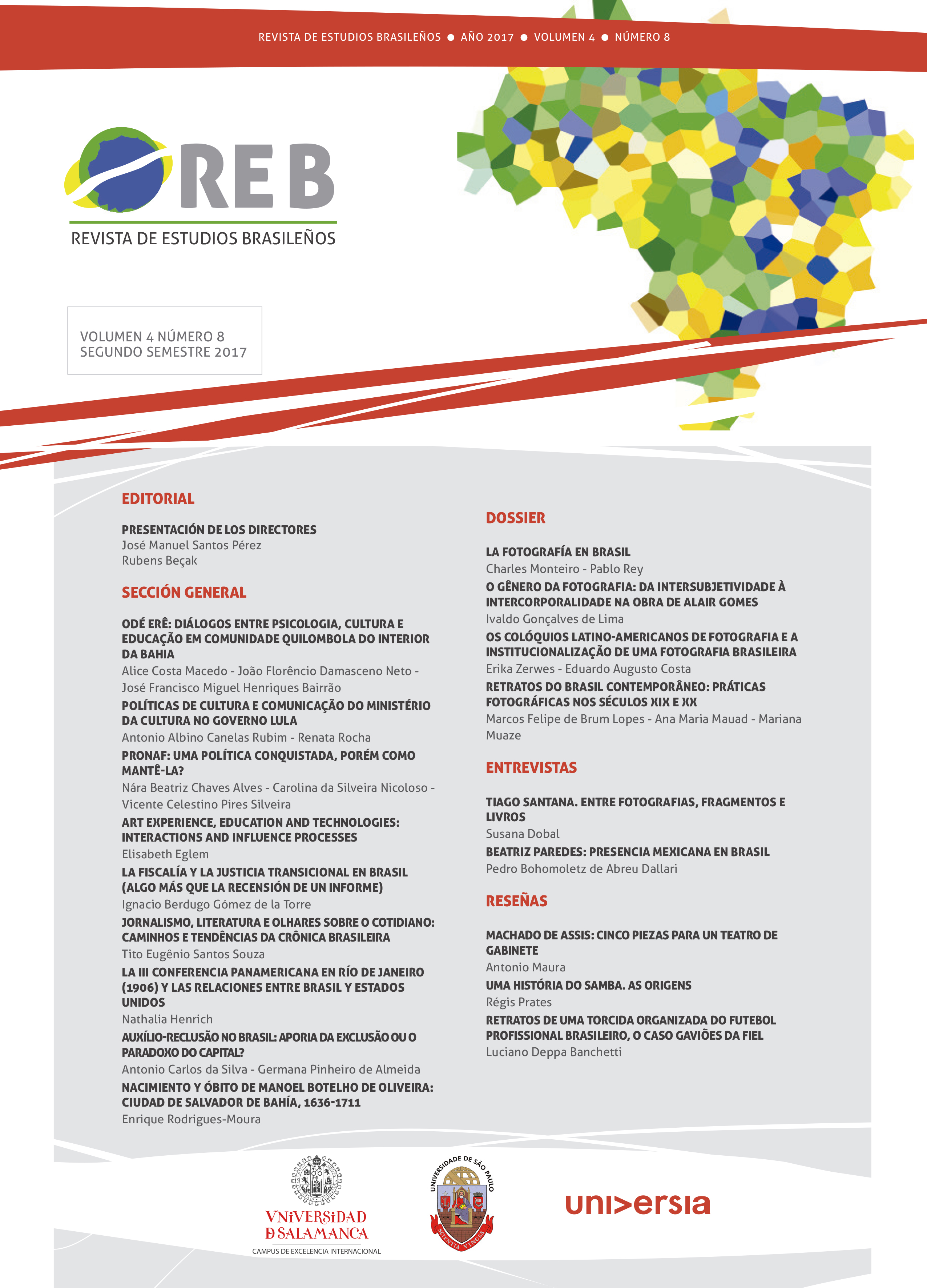Prisoner Aid in Brazil: Aporia of exclusion or the paradox of capital?
DOI:
https://doi.org/10.3232/REB.2017.V4.N8.3070Keywords:
Human Rights, Prisoner Aid, Social Security, Critical Theory, Brazil.Abstract
The aim of this paper is to critically encompass the concept and application of Prisoner Aid in the spectacle society, understood as an allegory in Brazilian liberal democracy, in contrast to the idea of justice, the promotion of human rights and the current stage of the structural crisis of capital. Thus, starting from generative issues - What are the impacts of Prisoner Aid? Who does it affect?- we point out the prevention principles that guide Brazilian Social Security (legal framework) and how Social Security in Brazil (institutional framework and agendas) is structured, highlighting the historical contextualization in the period between 1988 (Brazilian Constitution) and 2013. With a qualitative and documentary approach, the indicated methodology is legal-institutional discourse analysis, incorporating analysis of the role and purpose of the State under the aegis of the ethical-moral subject being supplanted by the commodity subject.Downloads
Download data is not yet available.
Downloads
Published
2017-10-05
Issue
Section
Articles
How to Cite
Prisoner Aid in Brazil: Aporia of exclusion or the paradox of capital?. (2017). Revista De Estudios Brasileños, 4(8). https://doi.org/10.3232/REB.2017.V4.N8.3070


